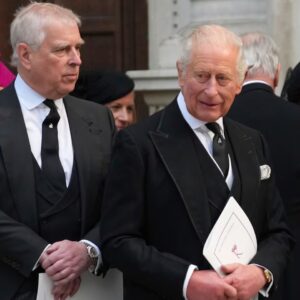A recent U.S. military operation targeting Iran’s key nuclear facilities has not only disrupted Iran’s nuclear infrastructure but also prompted new conversations in Washington, as lawmakers from different political backgrounds voice varied responses to the mission’s success and legal framework.
Widespread Support for Military Precision
The military operation, codenamed Operation Midnight Hammer, focused on three key nuclear sites: Fordow, Natanz, and Isfahan. Utilizing stealth aircraft, long-range bunker-busting munitions, naval-launched missiles, and cyber tools to disable radar systems, the operation was widely described by defense analysts as one of the most complex air missions in recent memory.
According to Pentagon officials, the strikes were completed with zero American casualties, and satellite images confirm extensive damage to several underground and above-ground facilities. Experts believe the U.S. employed earth-penetrating bombs to strike the deeply buried Fordow complex.
Unexpected Congressional Alignment
Senator John Fetterman of Pennsylvania publicly backed the strikes, stating the action was necessary to prevent further development of Iran’s nuclear program. His endorsement, coming from a member of the opposition party, highlighted how national security concerns can sometimes unify leaders beyond traditional political boundaries.
While some lawmakers expressed concerns over the constitutional process for military action, others emphasized the success of the operation and the professionalism of the U.S. military. The bipartisan reactions reflect a growing trend of evaluating foreign policy through a security lens rather than strictly political alignment.
Legal Framework and Oversight Discussions
In response to the strikes, members of Congress have introduced new proposals to clarify the conditions under which the president may order military actions without prior approval. These legislative efforts are rooted in the War Powers Resolution of 1973, which aims to ensure checks and balances between the executive and legislative branches during military engagements.
Lawmakers have emphasized the importance of upholding constitutional processes, particularly when it comes to long-term military commitments. The current debate may influence how future operations are authorized and how quickly Congress must be notified of such actions.
Strategic Military Insights
Military analysts noted that the two-week delay between initial threats and the actual strike helped maintain the element of surprise, minimizing risks to personnel. Retired Brigadier General Mark Kimmitt stated the timing demonstrated effective operational planning and deception, which contributed to the mission’s success.
The use of electronic warfare and cyber disruption played a crucial role in neutralizing Iran’s air defenses during the operation. This multi-layered approach reflects the evolution of modern warfare and the U.S. military’s focus on minimizing risk while achieving strategic goals.
Potential Risks and Regional Implications
Despite the operation’s success, experts caution that retaliation risks remain. Iran has previously responded to similar strikes through indirect means, including cyberattacks, support for regional militia groups, and asymmetric operations.
U.S. intelligence agencies are actively monitoring possible responses and have briefed lawmakers on emerging threats. These include potential attacks on U.S. infrastructure, cyber intrusions, and regional unrest affecting American forces abroad.
Security officials emphasize the need for continued vigilance and cooperation with allies in the region to prevent further escalation.
Broader Foreign Policy Considerations
The recent operation and the varied responses it generated signal a possible shift in how national security policy is discussed in the U.S. While traditionally divided along party lines, current events are encouraging a more nuanced dialogue based on shared concerns about global threats and security stability.
As lawmakers consider the legal and strategic dimensions of such actions, there is growing recognition of the importance of bipartisan cooperation in addressing complex international challenges.
Conclusion
The airstrikes on Iran’s nuclear facilities mark a significant moment in U.S. defense strategy and foreign policy discussion. They have triggered a wider debate in Congress about military authority, constitutional oversight, and national security priorities.
While political opinions remain diverse, the operation has demonstrated the ability of national security concerns to bring together leaders across the political spectrum, shaping the way future foreign policy and military decisions are approached in an increasingly interconnected and uncertain world.


